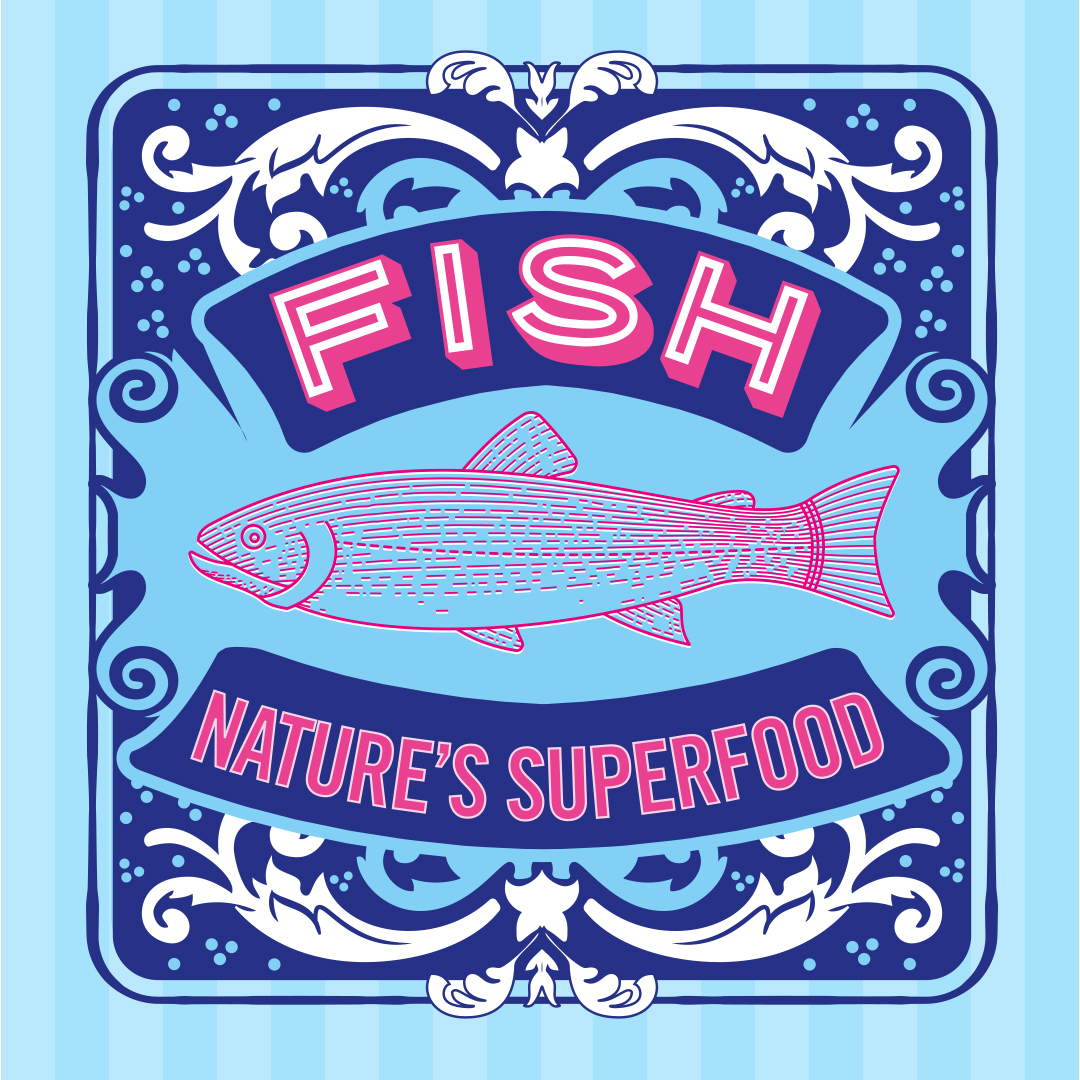Fish might just be the healthiest food on the planet – for your body and your brain. Packed with essential nutrients, high in protein, low in bad fats, rich in flavour and amazingly easy to cook, health experts reckon it should be on your plate twice a week – and that’s a minimum.
So why are fish so good for us?
Fish hit so many nutritional sweet spots. One of the best sources of low-fat protein, they are also rich in a bunch of essential vitamins and minerals. Calcium, iodine, iron, magnesium, phosphorus, potassium, zinc – an alphabet of our nutritional needs. Add in essential vitamins that few of us get enough of, like vitamin B and D2 and you can see why the men in white coats dub them superfoods.
Omega-3
Fish are a major source of omega-3 fatty acids, which are linked to a raft of major health benefits, including:
Boosting heart health by lowering blood pressure and reducing the risk of heart attack and stroke
Enhancing brain function – and good for infant eye and nerve health during pregnancy
May protect against depression, anxiety, ADHD, Alzheimer’s and diabetes
May help prevent inflammation and reduce the chances of arthritis
Because our bodies don’t produce omega-3 fatty acids we have to get them through food. Although all fish contain them, oily fish are particularly good: sardines, mackerel, salmon, trout, tuna and oysters are all bumper sources of this health wonder.
Greening your plate
We know that fish stocks across the globe are under pressure. Too many of them are depleted by overfishing. But the good news is that if you choose wisely, you can get the health benefits of fish and help the planet.
Here are a couple of top tips for choosing great fish from sustainable sources:
Take a look at the Marine Conservation Society’s good fish guide.
When it comes to the UK’s big five fish – cod, haddock, salmon, canned tuna and prawns – buy from certified sustainable sources
If you’re buying wild fish, look out for the Marine Stewardship Council (MSC) logo – it’ll come from well managed fisheries
With farmed fish, look for the Aquaculture Stewardship Council logo.
And think about the following sustainable fish swaps:
Replace tuna with MSC certified albacore tuna, line-caught in the Pacific
Replace farmed salmon with MSC certified wild Alaskan salmon
When it comes to haddock, look out for MSC certified stocks from Scotland or Norway
Our love of cod has led to serious overfishing, so try another white flaky fish like pollack or coley.
We British love our prawns – but go for local swaps like langoustines – also known as Dublin Bay Prawns or scampi.


















